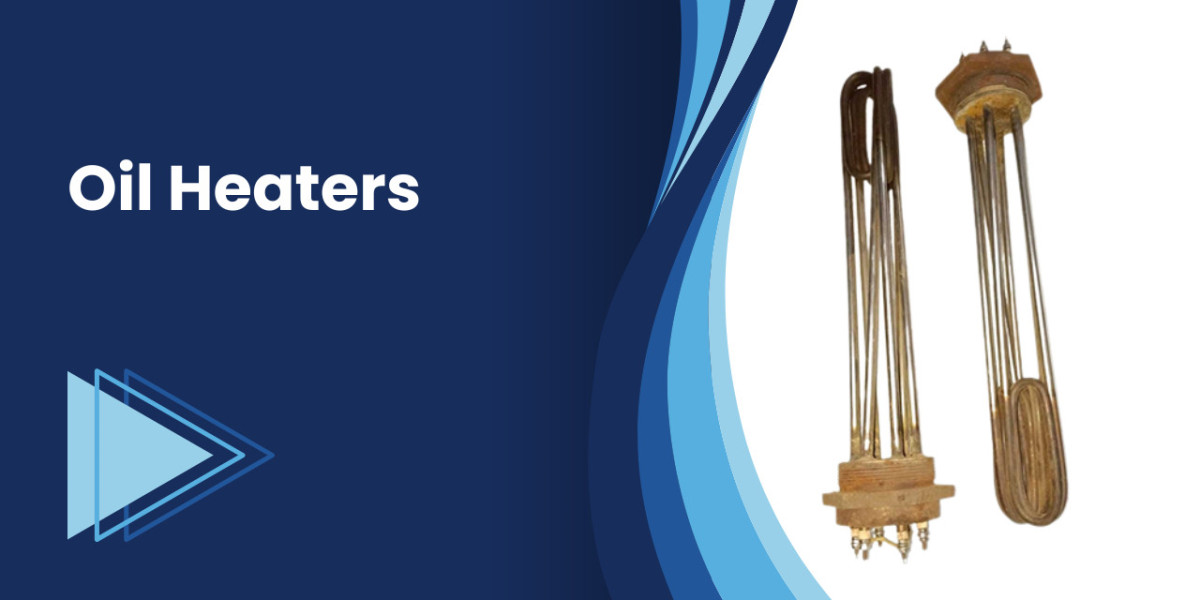Industrial heating solutions play a pivotal role across sectors ranging from manufacturing to chemical processing, food production, and water treatment. Among the most efficient and adaptable heating tools are Teflon immersion heaters, oil immersion heaters, and industrial water heaters. These systems are vital in ensuring energy efficiency, safety, and consistent heat delivery in demanding environments.
In this blog, we explore each of these heater types in depth — their features, benefits, ideal applications, and what makes them crucial for industrial operations.
What Are Immersion Heaters?
Immersion heaters are electric heating elements submerged directly into the liquid to be heated. They are widely used due to their direct heat transfer, energy efficiency, and ease of installation. Immersion heaters come in various types and materials to suit different industrial applications, including Teflon immersion heaters, oil immersion heaters, and industrial water heaters.
Teflon Immersion Heaters: A Corrosion-Resistant Solution
What Are Teflon Immersion Heaters?
Teflon immersion heaters are specially designed with a PTFE (Polytetrafluoroethylene) coating to resist aggressive chemicals and acidic solutions. These heaters are often used in applications where standard metal-sheathed heaters would quickly corrode or degrade.
Key Benefits:
Chemical Resistance: PTFE is highly resistant to strong acids, alkalis, and other corrosive chemicals.
Non-stick Surface: Teflon’s surface prevents scaling and buildup, reducing maintenance needs.
Temperature Stability: They can maintain consistent temperatures even in harsh chemical environments.
Common Applications:
Electroplating tanks
Acid pickling baths
Chemical processing
Laboratory and research facilities
Safety and Design Features:
Teflon immersion heaters are often built with over-temperature sensors and thermal cutoffs to ensure operational safety. Flexible design options like L-shaped, straight, or spiral forms are available to suit various tank configurations.
Oil Immersion Heaters: Efficient Heating for Viscous Fluids
What Are Oil Immersion Heaters?
Oil immersion heaters are electric heating elements designed to be submerged in oil or other viscous fluids. These heaters are engineered to handle thicker fluids that require gradual and even heating to prevent burning or breakdown.
Key Benefits:
Thermal Stability: Designed to operate in high-viscosity environments without causing thermal degradation of oil.
Energy Efficiency: Direct immersion offers superior heat transfer and quick heating cycles.
Customizable Designs: Available in various lengths, wattages, and mounting types.
Common Applications:
Hydraulic oil heating
Gearbox and engine oil heating
Fuel and diesel preheating
Heat transfer oil systems in food and chemical industries
Ideal for:
Oil immersion heaters are particularly useful in environments where temperature control of lubricants, fuels, or thermal oils is critical for equipment performance and longevity.
Industrial Water Heaters: The Backbone of Industrial Heating
What Is an Industrial Water Heater?
An industrial water heater is a high-capacity system designed to heat large volumes of water for commercial or industrial use. These heaters vary widely in design — from tank-based systems to on-demand (tankless) and immersion types — depending on the application.
Types of Industrial Water Heaters:
Electric Water Heaters: Ideal for precision-controlled heating.
Gas Water Heaters: Provide rapid heating for high-demand applications.
Immersion-Type Water Heaters: Used for direct heating of water in tanks or pipelines.
Key Benefits:
Consistent Water Supply: Ensure uninterrupted hot water for cleaning, processing, or production needs.
Energy Efficiency: Many models are now available with high-efficiency ratings and smart controls.
Durability: Built with robust materials to withstand years of industrial use.
Common Applications:
Food and beverage production
Textile and dyeing plants
Commercial laundries
Breweries and distilleries
Power plants and boiler systems
Choosing the Right Industrial Heater: Key Considerations
1. Material Compatibility
If the heater will come in contact with corrosive materials (like acids or alkaline solutions), Teflon immersion heaters are the ideal choice due to their chemical resistance.
2. Fluid Type
For viscous fluids like oils, oil immersion heaters provide effective and safe heating. Their design ensures that the oil doesn't overheat or degrade.
3. Volume and Capacity
For heating large volumes of water, especially in continuous operations, an industrial water heater is the most efficient and reliable solution.
4. Energy Efficiency
Choose systems with adjustable thermostats, smart controls, or programmable timers to reduce energy consumption and optimize performance.
Maintenance Tips for Long-Term Efficiency
Regardless of the type, maintaining your industrial heater ensures maximum performance and lifespan:
Regular Inspections: Check for signs of wear, corrosion, or buildup.
Clean Periodically: Especially for oil or water-based systems to prevent scaling or residue.
Monitor Controls: Ensure temperature sensors and safety cutoffs are functioning correctly.
Replace When Needed: Don’t delay replacing worn-out elements to avoid downtime.
Environmental & Cost Considerations
Energy-efficient heaters like industrial water heaters and oil immersion heaters with smart technology can significantly reduce operational costs and carbon footprint. Moreover, Teflon-coated heaters reduce waste and corrosion-related downtime, translating into long-term savings.
Future Trends in Industrial Heating
The industrial heating sector is witnessing rapid innovation, with emerging trends including:
Smart Heaters: IoT integration for real-time monitoring and control.
Modular Systems: Scalable solutions that grow with business needs.
Eco-Friendly Models: Heaters designed to meet stringent environmental standards.
AI-Based Predictive Maintenance: Using machine learning to predict failures and optimize usage.
Conclusion
Whether you're working with chemicals, oils, or large volumes of water, choosing the right industrial heater is crucial for operational efficiency and safety. Teflon immersion heaters offer unmatched chemical resistance, oil immersion heaters are perfect for viscous liquids, and industrial water heaters are the backbone of heating in high-demand applications.








